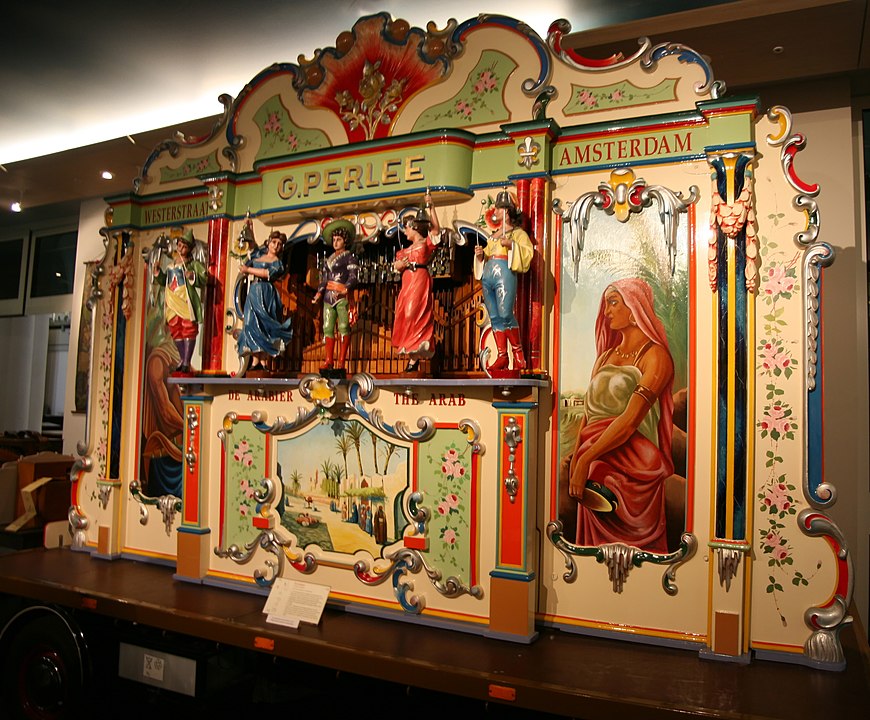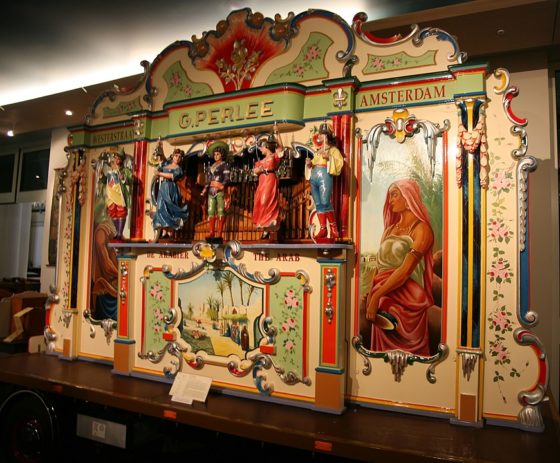Organ of infection? Protests after Amsterdam’s last street organ banned due to coronavirus


Concerns have been raised about the threat to Amsterdam’s ‘cultural heritage’ after its last street organ was banned from the streets until the end of November due to coronavirus prevention rules.
Ruud Brienen, director of Brienen Draaiorgels Alkmaar, has taken his street organ around the streets of Amsterdam daily for the past 30 years. But he told DutchNews.nl that after returning last week – when the coronavirus rules had been made more flexible – he received a letter from the council.
‘Until the end of November, I can’t come into the city centre of Amsterdam because the council thinks that groups form in front of musicians and don’t keep a 1.5m distance,’ he told DutchNews.nl.
‘I have made a formal complaint, but I don’t know how long that will take. It’s the holiday, people are working at home…but they could make this decision on Friday in a few hours that I was without work!’
The ruling has led to formal questions to the council from councillor Mourad Taimounti, head of the local Denk party, who is concerned about how Amsterdam will stop ‘Amsterdam’s cultural heritage from disappearing for good’. He suggests that the organ should be exempt from any ban on street entertainment because ‘it doesn’t necessarily put the public in danger of breaching the 1.5m rule.’
Brienen told DutchNews.nl that he would be happy to avoid busy times and places.
‘I come every day – it’s my profession, my bread and butter so I hope that there will be a bit of flexibility for us,’ he said. ‘Because of the circumstances, I haven’t been in the centre for months and I just started again last week. It is sometimes very busy in the Kalverstraat, and I don’t want that either, so I understand it.
Heritage
‘But there are also weekdays when it’s not busy at all, and I think we should be free to go then. In the street in Amsterdam, with the sound of the collection pots, it brings a real sense of atmosphere and last year the association for street organs won intangible cultural heritage status.’
He added that he hoped the city would respond to his complaint soon and see if a compromise could be arranged. ‘I have colleagues and if it takes too long, we will organise a demonstration or organs on the Dam. We will make ourselves heard!’
The mechanical musical instruments are thought to date back around 150 years and in Amsterdam in 1875, Belgian Leon Warnies started to hire out small, mobile street organs, according to the Dutch Centre for Intangible Cultural Heritage. By the 1920s and 1930s there were thought to be 40 operators each day on the streets of Amsterdam, but now Brienen believes he is the last one in the Dutch capital left.
© Senay Boztas
Thank you for donating to DutchNews.nl.
We could not provide the Dutch News service, and keep it free of charge, without the generous support of our readers. Your donations allow us to report on issues you tell us matter, and provide you with a summary of the most important Dutch news each day.
Make a donation